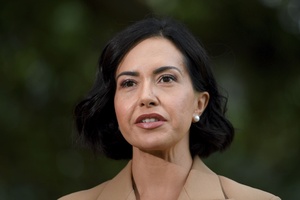With input from autistic people, parents, practitioners and other experts, the new eLearning resources not only build the capacity of practitioners to deliver the best evidence-based services and supports, but also empower families and carers to make informed choices.
Part of Autism CRC’s remit is to assist the Government to develop the National Autism Strategy.
During a visit to the Daphne St Childcare and Specialist Early Learning Centre in Adelaide, Rishworth said the resources deliver on a key action outlined in the Draft National Autism Strategy, which was launched for public consultation earlier this month.
“Autistic people tell us that they want services and supports to be evidence-based and to be confident they have comprehensive access to the latest information,” Rishworth said.
“I commend Autism CRC for their ongoing commitment to supporting the autistic community, through the practical translation of research into resources that help professionals and families.
“These resources will support practitioners, autistic people, and their families, through the often overwhelming stages of identification, assessment, diagnosis, support and decision-making.”
The resources are based on the National Guideline for supporting the learning, participation, and wellbeing of autistic children and their families in Australia, and include an eLearning short course on Guideline-based practice, resources for use in pre-service education and training, and resources to help guide individuals and families in planning and managing their journey.
They will help practitioners, service providers, educators, peak bodies, government bodies and families gain better understanding of how to best meet autistic children’s support needs ‒ doing so in ways that are safe, effective, and desirable to children and their families.
Rishworth also announced an updated set of evidence based, best-practice guidelines in the launch of the second edition of the National Guideline for the assessment and diagnosis of autism in Australia, first released in 2018.
The updated Guideline includes more accessible and neurodiversity-affirming language, incorporates the latest evidence-based practice recommendations, and promotes greater flexibility throughout the assessment and diagnosis process.
Autism CRC CEO, Andrew Davis highlighted Autism CRC’s long history of bringing all stakeholders together to collaborate in addressing major challenges and co-producing practical solutions.
“As with all our work, these practice guidelines and resources are founded on a combination of the latest, quality international research evidence and the wisdom of key stakeholder communities ‒ including practitioners, autistic people, and their families and carers,” Davis said.
More information on the National Autism Strategy is available on the Department of Social Services website here. You can have your say and make a submission by May 31, via DSS Engage.
For more information about Autism CRC’s new resources click here.














